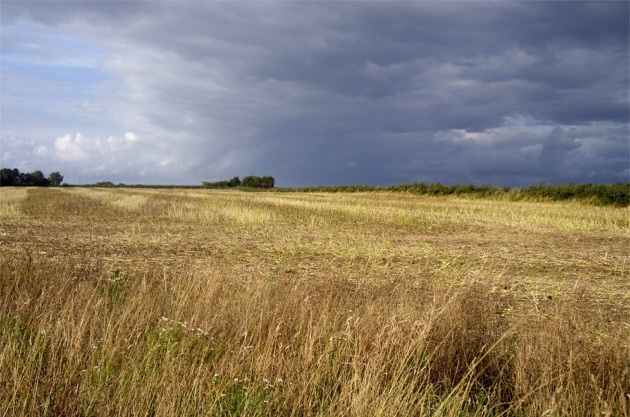
After a summer of persistent rain, UK yields for 2012 have been mixed across arable crops which could cause food prices to rise further.
According to a National Farmers' Union (NFU) survey, English wheat yields decreased by 15% on the five year average.
The harvest survey also revealed that other major arable crops grown in the UK have performed well in difficult conditions, although without the investment made in technology by farmers the wheat harvest could have been much worse.
"We have seen a relatively low wheat yield this year, below seven tonnes per hectare. This is something not seen in the UK since the late 1980s" said NFU combinable crops adviser Guy Gagen.
"The abnormally high rainfall across the UK since early summer this year has depressed wheat yield. Without considerable investment by our farmers in recent years, the results for wheat could have been much worse this harvest."
Figures show England and Wales had the wettest summer for 100 years, with up to 14 inches of rain falling from June to August.
"There are many farmers who are down 25 to 30% on the wheat crop" said NFU President Peter Kendall.
"In some cases you looked from the outside and you thought, this crop will do over four tonnes to the acre - and it's been struggling to do three and some cases two tonnes to the acre."
"It's been soul destroying for the farmers growing the crops."
Guy Gagen said results have been mixed across the main arable crops in 2012, and the average results hide 'extreme variations across the country'.
"Yields for some crops have performed better than average in 2012 with results for barley reported as good for malting and around average for rapeseed in terms of oil content and yield."
"Much of the 2013 rapeseed crop is now planted and up, and farmers will be looking for further breaks in the weather to complete winter cereal crop planting. I’d like to thank all those growers who responded to the survey and to GrainSafe for providing two automatic grain temperature monitors.”
"The abnormally high rainfall across the UK since early summer this year has depressed wheat yield. Without considerable investment by our farmers in recent years, the results for wheat could have been much worse this harvest."
"Investments in grain drying and handling facilities have been vital, while improved combine harvester capacity meant significant progress was made when breaks in the weather allowed. Although 2012 may be a harvest to forget for many, it has underlined the need for continual investment in agriculture.
“The poor UK harvest compounds a series of challenging weather events for farmers around the world, most notably drought in North America. The resulting tight supplies of many feed grains have driven up the prices of agricultural commodities around the world. These UK harvest results will do little to alleviate the global dynamics of commodity prices, with the prospect of relatively high commodity levels through to 2013."
"Cereals prices impact directly on other sectors, especially pig and poultry farmers who are already struggling with higher feed costs.”
Friends of the Earth campaigner Vicki Hird said climate change is damaging food production and causing prices to rise.
She said: "Our agricultural system is in desperate need of an overhaul to meet the twin challenges of feeding a growing world population and protecting the planet".
Commenting on the knock-on impact on poultry farmers, NFU director of corporate affairs Tom Hind said: “The volatility that we have been experiencing in feed costs recently has been unprecedented and likely to stay."
"Feed is the single biggest cost to poultry producers and many are reporting to me the significant outlay they are having to make to purchase feed compared to last year. It’s now really vital that the whole UK supply chain works together to ensure these additional costs farmers are facing are recognised or else we see a risk of critical mass in domestic production eroding.”
